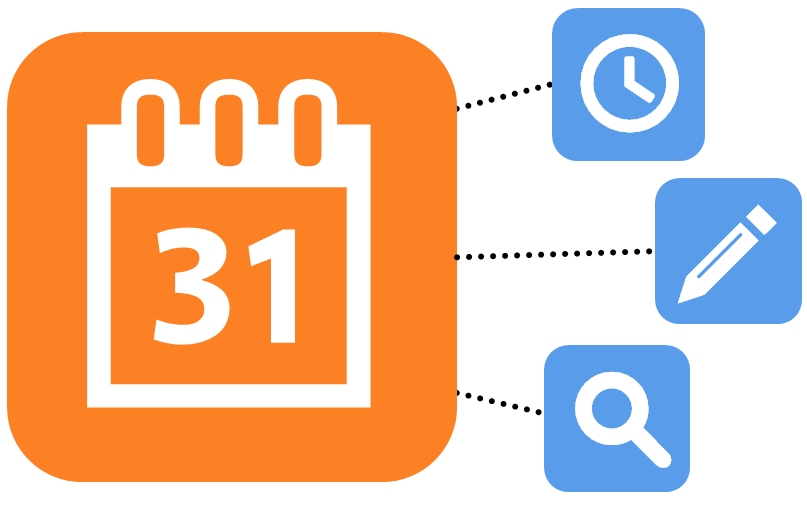Have you ever thought that you and/or your organization doesn’t have time to “create content.” Perhaps you have pondered what to write and communicate and came up blank. Do you have a lot of ideas, but fall short on implementation? In order for any content marketing strategy to be successful, creating a content calendar is a must. While you may have spent significant time on big picture ideas and messages, organizing those concepts into a content
calendar simplifies the execution process.
What is a content calendar?
You may be wondering what a content calendar is, so let’s start with the basics. A content calendar assists in selecting and creating content that is of high quality, consistent and reliable in order to keep readers coming back for more. A calendar coordinates all messaging and creates balance. This includes digital communication like social media, blogs, podcasts and email. It also can include direct mail, events and advertising, to name a few things. It’s a schedule, an accountability tool, an organizer and a way to ensure that you are sharing information with the right audience on a regular basis and at the most accurate time.
Why is it important?
Content calendars provide more for a company than meets the eye. Publishing content based on what your gut instinct thinks is best isn’t always the most effective way to reach a target audience. With a content calendar, you can create scheduled analytical checks to ensure that your audience is receiving the content they are looking for and that they are responding accordingly. Planning and measuring content helps increase success and reduce noise.
How detailed should it be?
There is no right or wrong way to create a content calendar. Here are some details to include:
- Calendars can be organized by day, week, and month. The amount of detail depends on how much information your organization has to share.
- The calendar should include which channel(s) the message applies to.
- Who is responsible for the content. The content creator and the distributor may be different people. You also may include content amplifiers – people who like, comment and share content posted by your company or an individual.
- Keeping the calendar clear and concise so that others can understand it without a legend is key for success. You want to have enough detail without it being overwhelming and it might take some tweaking to get it right.
What else can a content calendar do?
Far too often we tend to forget important dates that could influence the content being posted, or company campaigns and events that could benefit greatly from social media publicity during a given time. However, let us remind you that we live in a rapidly changing environment and creating and scheduling content too far into the future could hinder the company if it becomes unrelated and irrelevant to the target audience. Additionally, planning too much content takes a bit of the personal touch out of it and too much automation will impact relationships. There is a fine line between being organized and being too contentsational.
Another aspect of content calendars that play a major role in keeping and attracting readers is consistency. Lack of consistency can create a lack of followers on any social media outlet, which is why we recommend using the content calendar as a guide for social media posts and other content.
Furthermore, a content calendar can help track which SEO keywords have been used in previous titles and posts, and whether or not they are a direct link to the traffic (or lack of) on a website.
As you can see, a content calendar can serve useful and prove successful in many ways. Need help setting one up? Let us know how we can help.

